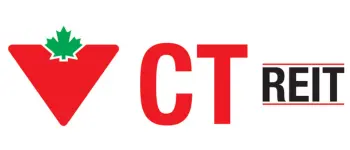Diversified, Liquid, and Often Large-Scale Exposure. See Some of the Arguments Backing Canadian REITs
Key takeaways
REITs offer high distribution yields primarily because of their business structure, which requires that they distribute the majority of their income to investors.
Share prices and the annual growth rates of REITs are not prone to significant movement, but they’re still reliable income payers known for the consistent growth of their distributions.
Specific REITs are vulnerable to trends associated with the industries in which most of their tenants are concentrated, such as e-commerce, office work, or retail.
Top Canadian REITs have a diverse tenant base, strong debt-to-asset ratios, and high occupancy rates.
3 stocks I like better than the ones on this list.Many investors don’t know the first thing about Canadian real estate investment trusts (REITs).
Most new investors these days strictly focus on learning how to buy stocks. But real estate exposure is also essential, and a real estate investment trust is an excellent way to make that happen.
The real estate problem in North America:
Real estate assets, particularly residential properties, are not easy to acquire. Most first-time buyers get into apartments or townhouses because they’re a little cheaper. Rising prices and higher down payments are making it impossible for Canadians to enter the market.
How can I expose myself to real estate without getting a mortgage? With real estate investment trusts, or, “REITs.”
In this article, I’ll go over some of my favorite REITs to add in 2025. Below the research, I’ll discuss some fundamental concepts about REITs you won’t want to miss.
Lets get started.
The Top REITs in Canada for 2025 and Beyond
One of Canada’s largest retailers
CT REIT (TSE:CRT.UN)

CT Real Estate Investment Trust (TSE:CRT.UN) is an unincorporated real estate investment trust that invests in retail properties across Canada. The important portion of properties are located in Ontario, followed by Quebec and Western Canada.
The trust generates the vast majority of revenue from leasing its properties to Canadian Tire Corporation, which operates the Canadian Tire retail stores. The trust’s portfolio consists of properties anchored by a Canadian Tire retail store, in addition to retail properties not anchored by Canadian Tire, distribution centres, and mixed-use commercial property.
Canadian automotive real estate
Automotive Properties REIT (TSX:APR.UN)

Automotive Properties Real Estate Investment Trust (TSX:APR.UN) is an unincorporated open-ended real estate investment trust focused on investing in high-quality Canadian automotive properties tenanted by automotive dealership groups and automotive brands ranging from mass-market to ultra-luxury.
The company holds a portfolio of best-in-class properties located in strategic Canadian urban markets across Ontario, British Columbia, Alberta, Saskatchewan, Manitoba, and Quebec.
The primary objectives of the REIT are to provide Unitholders with stable, sustainable and growing cash distributions, and to enhance and expand the REIT’s asset portfolio in order to maximize Unitholder value.
Industrial real estate
Dream Industrial REIT (TSE:DIR.UN)

Dream Industrial Real Estate Investment Trust (TSE:DIR.UN) is an unincorporated, open-ended real estate investment trust. Its portfolio comprises industrial properties located in key markets across Canada, Europe and the USA.
Its objective is to build upon and grow its portfolio and to provide stable and sustainable cash distributions to its unitholders. Geographically the business is organized into Ontario, Quebec, Western Canada, Europe and the USA. Substantial revenue is derived from the European portfolio.
Office space real estate
Allied Properties REIT (TSE:AP.UN)

Allied Properties Real Estate Investment Trust (TSE:AP.UN) is a real estate investment trust engaged in the development, management, and ownership of primarily urban office environments across Canada’s major cities. Most of the total square footage in the company’s real estate portfolio is located in Toronto and Montreal.
Allied Properties derives nearly all of its income in the form of rental revenue from tenants in its properties. The majority of this revenue comes from its assets located in Central Canada. Allied Properties’ major tenants include IT, banking, government, marketing, and telecommunications firms. The company also controls a number of telecommunications/IT and retail properties within its real estate portfolio.
Apartments REIT
Canadian Apartment Properties REIT (CAR.UN)

Canadian Apartment Properties Real Estate Investment Trust (CAR.UN), or CAPREIT, is a real estate investment trust primarily engaged in the acquisition and leasing of multiunit residential rental properties located near major urban centers across Canada.
The company’s real estate portfolio is mainly composed of apartments and townhouses situated near public amenities. Most of CAPREIT’s holdings are aimed towards the mid-tier and luxury markets in terms of demographic segments. The company derives nearly all of its income in the form of rental revenue from leasing its properties to tenants.
The majority of this revenue comes from assets located in the Greater Toronto and Greater Montreal regions. The buildings in these areas also contain the majority of CAPREIT’s total housing units.
What is a real estate investment trust?
Financial products often have confusing titles; real estate investment trusts are guilty of this. Known for short as a “REIT,” a real estate investment trust could be viewed as a form of crowd-funding.
Let’s hypothesize that you cannot afford to buy a rental property. However, if you combine forces with 1000 other people, collectively purchasing a rental property is a much more manageable hurdle.
This is essentially how a REIT works. A company garners investment from the public and then uses real estate to produce a return for the shareholders of that company. In other words, the company pools money from its investors and then uses that money to buy and/or develop properties such as homes, retail spaces, industrial properties, and more.
What kind of real estate does a REIT own?
There are lots of different specialized REITs that focus on specific property markets and commodities, such as:
- Residential real estate
- Retail real estate
- Office space
- Industrial properties
- Healthcare properties
- Car dealership properties
- Hospitality properties
- Farmland
And many more. A REIT could be geared toward just one sector, such as retail spaces. Or, a REIT could spread its business across multiple sectors, like combining residential and commercial real estate.
How does a REIT create a return?
- Lease and occupancy. The company purchases and owns several buildings, bringing in cash flow via rents and leases.
- Maintenance and management. The company must carefully execute the management and maintenance of its buildings, being mindful not to overspend and also avoid purchasing properties that will have unmanageable expenses in the future.
- Buying and selling. A REIT may sell properties that it can turn a profit on or sell properties that are no longer viable.
- Development. If a REIT owns a small group of retail spaces, could those retail spaces benefit from having more steady foot traffic? A REIT could choose to develop a nearby area into residential housing, thus having the two types of properties complement each other.
The company is busy, bustling, engaging in the work listed above, with the end goal of producing a profit that is then distributed to the people who own shares in the company.
These profits are usually dished out in the form of distributions to the shareholders and the distributions can be as high as 85-95% of the cash flow, after expenses.
How does the money move in the REIT?
- A REIT owns a retail space, and the tenant pays $5,000 per month to lease that space.
- The REIT then pays for any expenses not covered by the tenant, depending on the agreement between the REIT and the tenant. So, after expenses, let’s say the company is left with $1000.
- The company then pays its shareholders $900 of that remaining $1000, dividing the money between the shareholders based on the REIT’s payout structure.
What happens to the remaining $100?
The REIT can do what they feel is necessary with the remaining $100 after expenses and distributions, including but not limited to things like:
- purchasing more properties
- paying off debt and reducing interest costs
- saving the money for a rainy day in terms of unforeseen maintenance costs
How can I judge a REIT?
There are a handful of metrics that we can use to scrutinize REITs. However, these are not always going to be an effective “preset” for every REIT you encounter. Different assets and sectors can contain unique challenges and methods of cash flow.
Many items need to be accounted for or “adjusted” for in analyzing a REIT, such as:
- property depreciation or appreciation
- capital expenditures
- distributions
- operational costs
- gains and losses from property acquisition or sale
We can often use several different calculations to get a better picture of what is going on within a company’s ecosystem before making judgements.
In researching REITs you will find many formulas and metrics, such as:
- FFO: Funds From Operations
- AFFO: Adjusted Funds From Operations
- NOI: Net Operating Income
- CAD: Cash Available for Distribution
- Distribution yield
- Payout ratios
And many more depending on the particular REIT and sector.
Which are the best valuation metrics to use?
If a person is interested in REITs, they should at least familiarize themselves with the following metrics and what they are adjusting for:
FFO – Funds From Operations
FFO helps us get a bit deeper but surface-level view of profitability rather than just using net income or earnings as a judge of the REIT we are looking at.
FFO basic elements
FFO =
Net income + depreciation and amortization − gains (or + losses) on sale of real estate
AFFO – Adjusted Funds From Operations
AFFO can help us dig deeper into more than just profitability measure by looking into how sustainable cash flow is. AFFO further accounts for maintenance capex and other recurring costs.
Cash flow sustainability is a piece of the puzzle in terms of overall distribution sustainability. We can AFFO and distributions to gauge the security of distributions. Familiarize yourself with the AFFO payout ratio. Anything below 80% AFFO payout ratio is considered safe, while anything above 95% is cause for concern.
AFFO basic elements
Though there is no universal set formula for AFFO, in some instances, it could be similar to:
FFO − recurring maintenance capex − straight-line rent adjustments − leasing costs (if necessary)
Cap rates – Capitalization rates
Capitalization rates, in a nutshell, show us what the rate of return is based on income relative to the value of the properties a REIT is working with.
A lower cap rate could indicate lower risks and higher competition, while a higher cap rate might suggest greater risks or higher returns.
Cap rate basic elements
Cap Rate =
Net operating income (NOI) / property value (or purchase price)
What makes a best-in-class REIT?
Top REITs in Canada have a diverse tenant base
We want a diverse tenant base that includes companies with a long-standing reputation for rent payments and high occupancy rates.
The best Canadian REITs have strong debt-to-asset ratios
Most Canadian REITs hang out at a 50% debt-to-assets ratio. Many are lower, but that’s usually because the REIT plans to borrow to fund expansion plans. The higher ones typically try to pay down debt, which a REIT usually does by selling non-core assets or issuing units.
Related
Top Canadian REIT ETFs

Can I just buy a REIT ETF?
Of course! There are a multitude of REIT ETFs in Canada. Some popular players in the space are:
- Vanguard Capped REIT ETF (TSE:VRE)
- BMO Equal Weight REITS Index ETF (TSE:ZRE)


